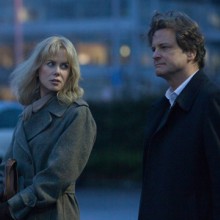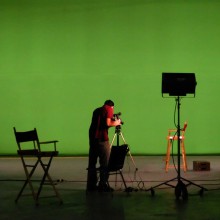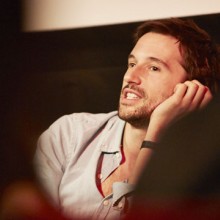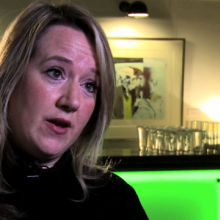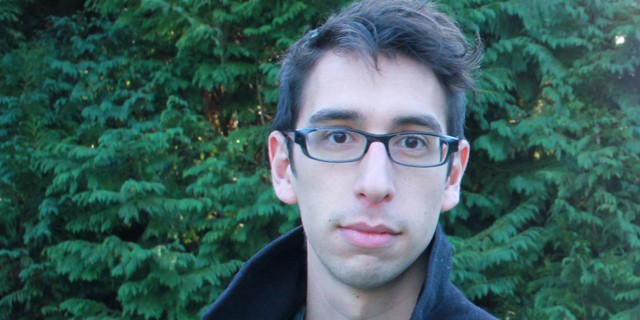
Tom Kingsley: Interview
The co-director of indie comedy drama Black Pond on the risk-taking and creative freedom involved in getting his first feature made.
Published on 8 February 2012.
What first inspired you to get into your craft?
I’m not sure exactly. But maybe one factor was that my family didn’t have a TV when I grew up. That made the occasional trip to the cinema even more exciting than it might have been.
How did you first break into the industry?
It doesn’t feel like I’m in the industry yet, but maybe it never does. If I am in it, then it’s sort of by accident in that Will Sharpe [writer and co-director of Black Pond] and I made our first film completely outside the industry. After two years of making the film – and everything else from finding funding to self-distributing – we realised that we had actually ended up making a film! And therefore, once we’d released it, we ended up in the industry whether the industry liked it or not. That seems to be quite a nice way of breaking in, but we were very lucky that the gamble paid off. I suppose the downside was that we didn’t have any support, but the huge upside was that we had total creative control.
Another moment that was almost as important was when I got my first paid job in the world of filmmaking. Instead of going to film school, I worked as a runner on shoots for music videos and commercials. I got that job by making some short animations, and sending them to several production companies in London. Bart Yates at Blinkink watched them, and got me my first job. While working there, I learnt nearly all the technical stuff that I know about filmmaking. The rest I got from Google.
Which professional figure in your field do you find the most inspiring?
I admire Steven Soderbergh’s hands-on approach to filmmaking. He writes, shoots and edits most of his films, which gives him the freedom to make some very personal films amongst his more commercial work. In such a bloated and slow-moving industry, his way of working is really inspiring. I think that’s the future.
If you hadn’t managed to break into your field, what was your plan B?
In a way, filmmaking is my plan B, because after leaving university I thought it would be safer and more respectable to be a journalist. I was wrong. It wasn’t for me. So then I thought I might as well go for it and do all I could to get into film.
Which film/TV programme do you wish you could have worked on?
Maybe Brazil. That’s my favourite film.
What single piece of advice would you give to a young person trying to break into your discipline and get noticed? How do you stand out from the crowd?
Don’t wait for anyone to give you permission to make a film. Just learn to be as independent as you can, and make lots of stuff by yourself on the cheap. Filmmaking is a very practical medium – most of it is about problem-solving in a tasteful way. You can only learn how to make films by making films. And once you have access to a camera and a laptop, you don’t need to spend any more money to practice. Make short films, learn from your mistakes and get better. Don’t worry about getting funding, or getting into a short film festival. Once you’ve made a few short films completely independently, you’ll have encountered most of the problems that will come up when you come to make a feature.
Were there any people who supported/mentored/championed you in the early stages of your career? How important are these kinds of relationships?
I reckon the best advice comes from your friends who are trying to do similar things to you. The film industry is changing very quickly, and the people most alert to that change are likely to be the people at the bottom, trying to fight their way in. My most important working relationship is with Will because we spur each other on to do better things than we would on our own. And when we’d be editing our film late at night for weeks on end, and our friends would ask where we’ve been all this time, I’d know that at least if I was mad for trying to make this film, then Will was mad as well.
How do you think the UK film/TV industry will change in the next few years?
I think it will change a lot. It’s cheaper than ever to make films and distribute them. And so the big companies that hand out large sums of money to a few lucky filmmakers seem to be a throwback to another era of filmmaking. I reckon that the new wave of young and inventive filmmakers will be able to have much more power within the industry – meaning we’ll end up with more interesting and personal films. It feels like filmmaking is becoming more democratic.
Find out more about the Outstanding Debut Award presented in honour of Carl Foreman.


